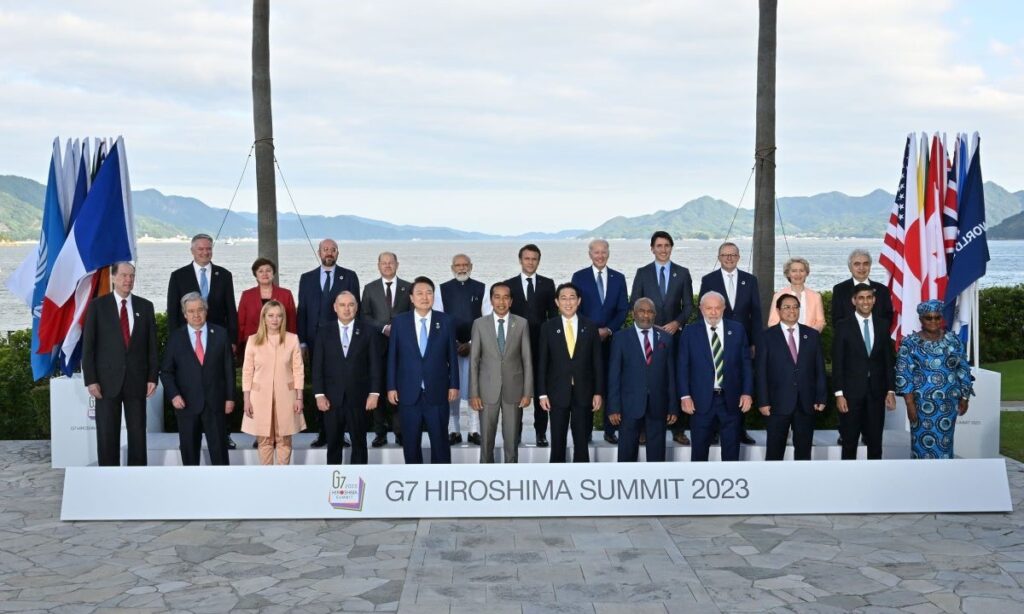Leaders from the Group of Seven (G7) nations and the European Union convened in Hiroshima, Japan, a city with a poignant history, for their annual summit. United Nations Secretary-General Antonio Guterres, who also attended the meeting, praised the resilience of the Hibakusha, survivors of the devastating atomic bombing in 1945.
Guterres emphasized the United Nations’ commitment to achieving a world free of nuclear weapons and called on the G7 to take decisive action on pressing global challenges.
In his address to the G7 leaders, Guterres highlighted the dire financial crisis faced by developing countries, urging the wealthiest nations to recognize the plight of over half the world’s population. He identified three dimensions of the problems faced by developing nations: moral, power-related, and practical.
Guterres criticized the global economic and financial system for its inherent bias and outdatedness, stating that developing economies had been let down and sold short even within the existing rules. He urged the G7 to fulfill their duty to rectify the system and reform the United Nations Security Council to better represent today’s geopolitical realities.

Guterres further stressed the urgency of addressing climate change, emphasizing that the G7 countries hold significant economic and financial power in combating this global crisis. He cited projections that suggest a temperature rise of 2.8°C by the end of the century, and he warned that the next five years are likely to be the hottest ever recorded.
The UN chief called on the G7 to embrace an “Acceleration Agenda,” aiming for all member countries to achieve net-zero emissions as close as possible to 2040, with emerging economies striving for the same by 2050.
The Climate Solidarity Pact proposed by Guterres urged the G7 to mobilize resources to support less affluent economies in accelerating their decarbonization efforts, aiming to limit global warming to 1.5°C above pre-industrial levels. Guterres urged the G7 to implement faster timelines for phasing out fossil fuels, increasing renewable energy usage, and putting a price on carbon while ending fossil fuel subsidies. He also called for a complete phase-out of coal by 2030, highlighting the importance of transitioning to cleaner energy sources.
In addition to climate action, Guterres advocated for climate justice, emphasizing the need to support countries that have contributed the least to climate change but are suffering its most severe consequences. He stressed the importance of developing adaptation strategies and early warning systems to protect vulnerable communities.
Guterres also called for developed countries to fulfill their promise of providing USD 100 billion annually to assist developing nations in climate-related efforts. He underscored the operationalization of the Loss and Damage Fund agreed upon during COP27 in Sharm el-Sheikh last year.
As the G7 summit concluded, Secretary-General Guterres’s powerful messages resonated with the leaders, reminding them of their shared responsibility to address pressing global crises and tackle the urgent need for climate action. The world now looks to the G7 to translate these commitments into concrete steps and lead the way in building a more sustainable and equitable future for all.
